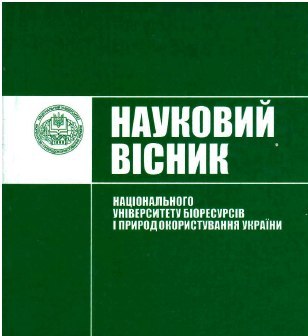Тhe literary tale’s genre as the dialectal unity of literary and folk traditions
DOI:
https://doi.org/10.31548/philolog0(263).2017.0134%20-%20141Abstract
The article is devoted to the analysis of scientific views on the theoretical concept of genre paradigm of the literary tales as a phenomenon of the national literary process, in particular to the problem of synthesis of major functional structural elements: individual author principles and poetics of folk tales, which makes genealogic potential of this genre. Literary fairy tale as a genre, whose occurrence basis - national epic fairy - is an original, distinctive and unique phenomenon in the world of literary tradition in general. Writer and storyteller managed to do the impossible - remaining artists of his time, faithful to the requirements of his era, they create images of living for centuries, stories that never ceases to reread by the millionth audience. Little readers are attracted by the unusual situations and characters, fantastic adventures, rapid and dynamic storyline and for adult recipient it is interesting of primarily mythological overtones, archetypal meaning, philosophy, symbolism. Based on specific researches of the literary tales, combining theoretical, historical and literary aspects of research, the article reveals the prerequisites, the specificity and uniqueness of diffusion synthesis dominant structural elements of the genre. We note that their dialectical unity promotes effective process of formation and functioning of all kinds of literary fairy tales genre in the world and the domestic literary space. The basis of this artistic phenomenon - the presence of the subjectivity in the literary fairy tales and treatment in the process of its creating to the systems of the poetic folk tales and their synthesis in the matrix of the genre of literary fairy tale.
References
Bakhtyn, M. M. (1979). Estetyka slovesnoho tvorchestva [Aesthetics of verbal creativity]. Nauka, 415.
Halych, O.,V. Nazarets, Ie. Vasyliev (2001). Teoriia literatury [Literatury Theory]. Lybid, 488.
Dokynz, R. (1993). Ehoystychny hen [A selfish gene]. Nauky, 204.
Kopystianska, N. Kh. (2005). Vidminnist u khronotopi folklornoi i literaturnoi kazky [The difference in the time-space folk and literary tales]. PAIS, 87–92.
Lypovetskyi, M.N. (1992). Poetyka lyteraturnoi skazky [Poetics of a literary fairy tale]. Yzdatelstvo Uralskoho unyversyteta, 184.
Literaturoznavchyi slovnyk-dovidnyk(2006). [Literary Dictionary Directory]. Akademiia, 321–322.
Myfy narodov myra: Entsyklopedyia(1992). [Myths of the peoples of the world: Encyclopedia]. 2 t. Prosveshchenye, 719.
Nahyshkyn, D. (1957). Skazka y zhyzn: pysma o skazke [Fairy-tale and life: letters about a fairy tale]. Dethyz, 269.
Neelov, E. N. (1987). Skazka, fantastyka, sovremennost [Fairy-tale, fantasy, modernity]. PHU, 275.
Tykholoz, N. (2005). Kazkotvorchist Ivana Franka (henolohichni aspekty) [Kazkotvorchist Franko (genealogic aspects)]. TzOV «Polihrafiia», 316.
Tolkyn, Dzh. P. P. (1991). O volshebnykh skazkakh [About fairy tales]. Prosveshcheniie, 225–247.
Iarmysh, Iu. F. (1975). U sviti kazky [In the world of fairy tales]. Rad. pysmennyk, 142.
Zipes, J. D. (1999). When dreams comes true: classical fairy tales and their tradition. NY, 305.
Downloads
Published
Issue
Section
License
Relationship between right holders and users shall be governed by the terms of the license Creative Commons Attribution – non-commercial – Distribution On Same Conditions 4.0 international (CC BY-NC-SA 4.0):https://creativecommons.org/licenses/by-nc-sa/4.0/deed.uk
Authors who publish with this journal agree to the following terms:
- Authors retain copyright and grant the journal right of first publication with the work simultaneously licensed under a Creative Commons Attribution License that allows others to share the work with an acknowledgement of the work's authorship and initial publication in this journal.
- Authors are able to enter into separate, additional contractual arrangements for the non-exclusive distribution of the journal's published version of the work (e.g., post it to an institutional repository or publish it in a book), with an acknowledgement of its initial publication in this journal.
- Authors are permitted and encouraged to post their work online (e.g., in institutional repositories or on their website) prior to and during the submission process, as it can lead to productive exchanges, as well as earlier and greater citation of published work (See The Effect of Open Access).

